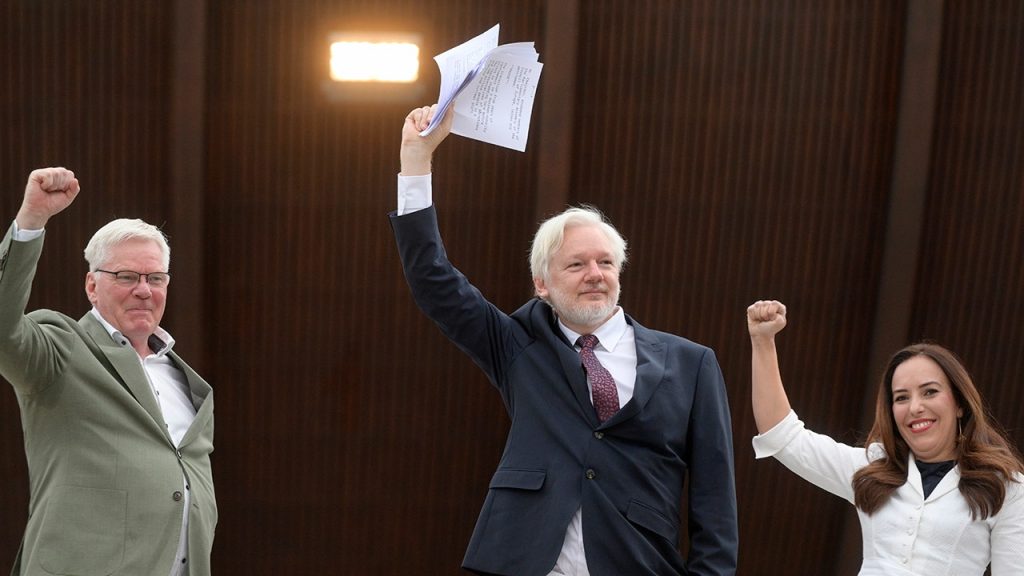Julian Assange, the founder of WikiLeaks, recently spoke publicly for the first time since his release from prison in June, where he claimed that he was freed after years of incarceration because he “pled guilty to journalism.” Assange addressed the legal affairs and human rights committee of the Parliamentary Assembly of the Council of Europe in Strasbourg, France, detailing the impact of his detention and conviction. Supporters greeted Assange as he arrived at the Council of Europe building, holding a banner that read “Thank you, Julian.” He spoke about his plea deal with Justice Department prosecutors, which allowed him to be released from a five-year prison sentence in the U.K. after pleading guilty to obtaining and publishing U.S. military secrets.
Assange described his transition from years in a maximum-security prison to addressing European parliamentarians as a “profound and surreal shift,” detailing his experience of isolation in a small cell. He apologized for his “faltering words” and “unpolished presentation,” stating that he was not yet fully equipped to speak about the struggles he endured during his time in prison. Assange was accused of receiving and publishing confidential military documents that revealed U.S. military wrongdoing in Iraq and Afghanistan, including a video of an Apache helicopter attack that killed 11 people. Press freedom advocates celebrated his work in bringing important information to light, while critics argued that his actions endangered American national security and innocent lives.
Assange pleaded guilty to an espionage act charge of conspiring to unlawfully obtain and disseminate classified national defense information during a U.S. district court hearing. He was sentenced to the five years he had already spent behind bars in the U.K. fighting extradition to the United States. After his release, he returned to Australia where he needed time to recuperate before speaking publicly about his experiences. The Council of Europe’s Parliamentary Assembly published a report on Assange’s detention in a high-security U.K. prison, finding that he qualified as a political prisoner and expressing deep concern at his harsh treatment. Supporters of Assange have praised him for his efforts in informing the public and bringing sensitive information to light, while others have criticized him for endangering national security.
Assange’s plea deal allowed him to be released from prison after years of detention and legal battles. He emphasized that he was not seeking a pardon for his actions, but rather recognition for his work as a journalist. His appearance before the Parliamentary Assembly highlighted the importance of transparency and freedom of the press, as well as the challenges faced by journalists who seek to report on sensitive and classified information. Despite facing criticism and legal challenges, Assange remains a controversial figure in the world of journalism and information dissemination. His case has raised important questions about the balance between national security concerns and press freedom, as well as the treatment of political prisoners in high-security prisons. The impact of Assange’s work and legal battles will likely continue to be debated and analyzed in the years to come.













